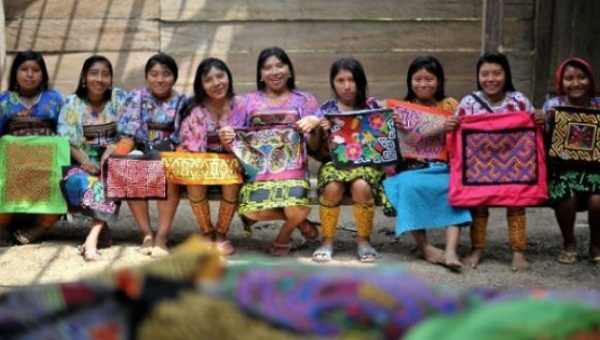While fashion giants are profiting from the appropriation of Indigenous cultures, local initiatives are mobilizing to fight back.
Over 80 Indigenous women discussed how to legally protect their craftwork from fashion appropriation Tuesday in Panama, during the last day of the first Bi-National Meeting of Women Artisans and Local Authorities from the Indigenous community of Ipeti Guna, who live along the Colombian-Panamanian border.
The communities focused on the typical outfits known as “molas,” which are cloths sewed together with native figures of animals or abstract shapes.
In Panama, the government has already implemented a project meant to list all the artisanal and religious knowledge of the Indigenous tribe in a bid to better preserve it. Guna women have also been granted an official accreditation as genuine producers of the molas cloths.
These clothing and designs have gained international prestige in recent years, and as a result have been subject to plagiarism by fashion designers and artisans from other countries.
Panama’s Minister of Culture Migdalia Herrera attended the meeting and told EFE that the Guna Yala community had to sue various textile companies for plagiarism.
“The molas were originated, and are created by the Guna people, not others. Companies must ask for permission before they can use it,” she added.
The communities are coordinating actions with the national customs and the Trade Ministry in order to control the contraband of molas.
